Events
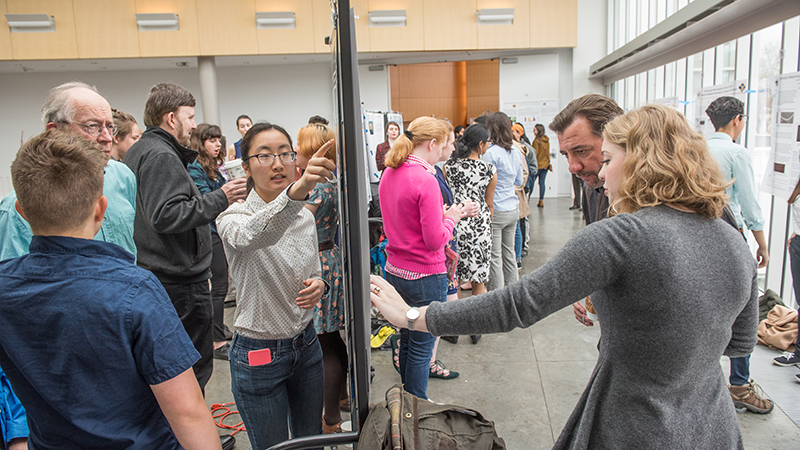
Lecture Series
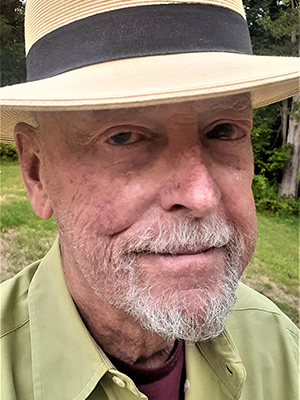
Bruce R Smith, Ruth and Clarence Kennedy Professor in Renaissance Studies (Fall 2022)
Fall 2022 Lecture Dates and Information
Renaissance Poetry Across Media
In our own media-savvy time, we realize that what gets communicated is very much a function of how it gets communicated. These three lectures investigate manuscript, print, sculpture, architecture and music as media for communicating 16th and 17th century poems in Shakespeare's England.
| Lecture Date | Lecture Title |
|---|---|
| Monday, September 26 | Poetry, Media and Across |
| Monday, October 31 | Poetry, Sculpture and Architecture |
| Tuesday, November 29 | Poetry and Music |
All lectures will take place in the Neilson Browsing Room and begin at 5 p.m.
This series is hosted by the Department of English and made possible by the Ruth and Clarence Kennedy Endowment for Renaissance Studies.
The Engel Lectureship is granted annually to a Smith faculty member who has made a significant contribution to his or her field. The lecture was established in 1958 by the National Council of Jewish women in honor of Engel, its onetime president and a 1920 Smith graduate. This year there will be two Engel Lecturers. The 2021–22 Engel Lecturer Susan Levin and the 2022–23 Engel Lecturer Patty DiBartolo.
Spring 2023
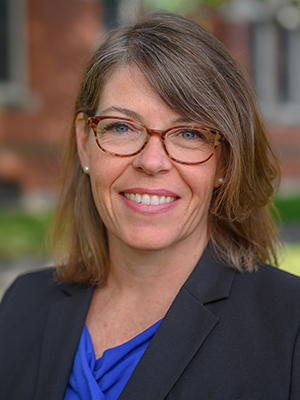
The 64th Katharine Asher Engel Lecture
Golden and Gifted: Perfectionism as Hegemony
Patty DiBartolo
Caroline L. Wall ’27 Professor of Psychology
Thursday, April 6, 2023 at 5 p.m. — Neilson Library, Klingenstein Browsing Room, Smith College
In this lecture, Patty DiBartolo shares an emerging paradigmatic shift in her intellectual journey as a perfectionism scholar. This shift is propelled by interdisciplinary engagement, clinical and scientific literatures, collaborations with students, relationships with fellow faculty, and today’s extraordinary historical events.
Patty traces the explosion of research on perfectionism in the last 30 years. The field grew from only a handful of clinical case studies when she was a beginning undergraduate researcher to the tens of thousands of scientific books and articles published today, at a time of what some have called an epidemic of perfectionism. Why is it that the field now knows so much about perfectionism, yet the distress it spawns is more endless than ever? Might there be something we are missing?
Through data and anecdote, Patty traces how psychology’s earliest clinical conceptualizations of perfectionism centered upon privilege, generating a legacy of knowledge relatively silent on the role of race and power. Mapping the ways in which scholars from an array of disciplinary perspectives outside of psychology—including history, political philosophy, and feminist and critical race theories—provided key insights, Patty articulates how the methods, assumptions, and sociocultural and historical influences on the perfectionism field influenced and limited research and practice. To hone and address these limitations, she shares ethnographic and narrative stories in law, literature, and higher education that provide rich description of the ways in which women and BIPOC (Black, Indigenous, People of Color) individuals express, experience, and understand perfectionism. Within many elite and selective spaces, perfectionism serves to reinforce and recapitulate current systems of hegemony, especially when inequitable notions of standards and mistakes negatively impact those historically marginalized. As a result, the current atomistic view of perfectionism and the treatment interventions that view informs tragically underestimate how identity as well as broad historical and contextual factors give rise to this trait.
As a next step, Patty offers a currently imperfect draft of an expanded definition of the perfectionism construct. The research and practical suggestions that flow from this revision provide new directions to disrupt perfectionism and prevent it from exacting a toll from so many, especially those historically kept at the margins.
Patty is the Caroline L. Wall ‘27 Professor of Psychology. She received her A.B. from Smith College in 1989 and returned to join the faculty after earning her doctorate in clinical psychology from the State University of New York at Albany. Patty previously served as the inaugural faculty director of the sciences (2013–2017) and the associate dean of faculty/dean for academic development (2017–2020) at Smith.
Her long standing research interests focus on investigating the definition and phenomenology of perfectionism and its relationship to mental health, work first begun while she was an undergraduate. In the last 10 years, Patty’s scholarly interests expanded to include research on effective and equitable programs and pedagogy in higher ed. She has given more than 100 scholarly and poster presentations and published 45 articles and chapters, regularly including undergraduate collaborators. A 4th edition of her edited volume, Social anxiety: Clinical, social, and developmental aspects (Elsevier, 3rd ed., 2014, with Stefan Hofmann) is currently in the works and her therapist manual, Cognitive-behavioral therapy for social phobia in adolescents: Stand up, speak out (2007, with Anne Marie Albano), is part of the Oxford University Press’ Programs that Work series. Patty is often called to present her research to a variety of audiences, including teachers, parents, and mental health professionals, and her work has been featured in a range of mainstream media venues, including Time, Health, Redbook, and Psychology Today. In 2008, Patty was awarded the Smith College Kathleen Compton ’54 and John J.F. Sherrerd Prize for Distinguished Teaching and in 2015, she was elected a fellow of the Association for Behavioral and Cognitive Therapies.
Fall 2022
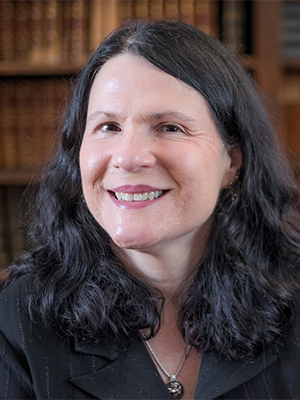
The 63rd Katharine Asher Engel Lecture
Are We Essentially Information? Why Humanity’s Future Hinges on Our Answering This Question
Susan Levin
Roe/Straut Professor in the Humanities and Professor of Philosophy
Monday, November 7, 2022 at 5 p.m. — Seelye 201, Smith College
In this lecture, Susan Levin will critique transhumanism, whose advocates urge us to pursue “radical” enhancement of humans’ cognitive ability and moral attitudes, through manipulation of genes and the brain. Surpassing us categorically, the possessors of these abilities would qualify as “posthuman.” According to Susan, transhumanism is deeply misguided, both scientifically and philosophically. Transhumanists insist that cutting-edge science will deliver humanity’s self-transcendence. In actuality, their view of our genes and brain rests on a conceptualization of the real and knowable per se as “information,” crystallized in potent metaphors, such as “program” and “code.” Far from manifesting a timeless truth as transhumanists presume, this picture stems from a particular confluence of developments during World War II and its aftermath. Mounting findings in genetics and neuroscience undercut this informational frame and, with it, prospects for the discrete manipulation of capacities that transhumanists single out for elevation.
Ultimately, Susan’s objections to transhumanism are philosophical. Even if the informational picture were correct and posthumans could be “built,” we should not proceed. For, in so doing, we would eliminate what makes existence as a human being distinctive and worthwhile. Moreover, science cannot be “salvific,” as transhumanists presume, for it cannot tell us what humanity’s guiding values and ends should be. Ancient virtue ethics, adapted to liberal democracy, offers a holistic perspective on living well that is radically superior to transhumanism, which, condemning humanity as hopelessly defective, locates humanity’s worth in subserving the emergence of its own “godlike” successors.
Susan B. Levin is the Roe/Straut Professor in the Humanities and Professor of Philosophy. In addition, she is a member of the steering committee for the Five College Program in Culture, Health and Science. Susan received her Ph.D. from Stanford University and her B.A. from Pomona College. She has been a member of the faculty at Smith since 1993.
The areas of Susan’s research are bioethics and ancient Greek philosophy. Her most recent book is Posthuman Bliss? The Failed Promise of Transhumanism (Oxford, 2021). The American Philosophical Association featured the book in its Recently Published Book Spotlight. Susan also discusses the book in a post for OUPblog, an article for the Institute of Art and Ideas, and a blog post in the series “The Page 99 Test.” An interview with her appears in the Summer 2021 issue of the Smith Alumnae Quarterly.
Susan previously published two books in Greek philosophy, Plato’s Rivalry with Medicine: A Struggle and Its Dissolution (Oxford, 2014) and The Ancient Quarrel between Philosophy and Poetry Revisited: Plato and the Greek Literary Tradition (Oxford, 2001). In addition, she has published numerous articles in both bioethics and Greek philosophy.
September 14, 2022
A lecture by Lauren Duncan, William R. Kenan, Jr. Professor of Psychology
Rebel with a cause: Psychological motivators of activism
Seelye 201, 5–6 p.m.
October 25, 2022
A lecture by Andy Rotman, Sydenham Clark Parsons Professor of Religion
Bargaining Justice: Negotiating Law in an Indian Bazaar
Conference Center, 5–6 p.m.
December 7, 2022
A lecture by Ruth Ozeki, Grace Jarcho Ross 1933 Professor of Humanities and Professor of English Language & Literature
The Book of Form and Emptiness
Conference Center, 5–6 p.m.
February 15, 2023
A lecture by Andrew Guswa, L. Clark Seelye Professor of Engineering
Ecohydrology: Roots, Canopies, and Nature's Water Infrastructure
Conference Center, 5–6 p.m.
March 9, 2023
A lecture by Bosiljka Glumac, Dwight W. Morrow Professor of Geosciences
Title forthcoming
Conference Center, 5–6 p.m.
April 25, 2023
A lecture by Nnamdi Pole, Harold and Elsa Israel Professor of Psychology
View From The Mountaintop: Reflections on Startle and Social Science
Conference Center, Paradise Room, 5–6 p.m.
Fall 2023 Neilson Professor
Eszter Hargittai ’96
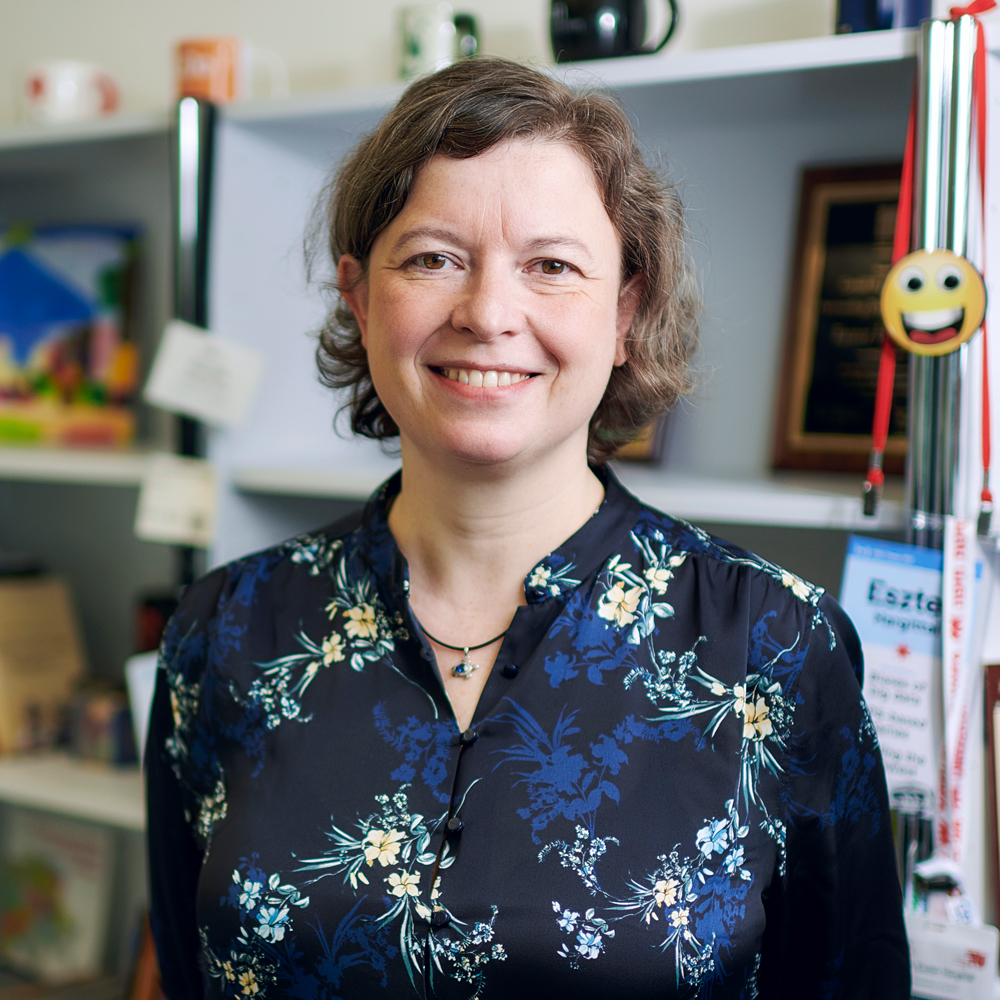
Eszter Hargittai ’96 is a Professor and holds the Chair in Internet Use & Society in the Department of Communication and Media Research at the University of Zurich. She is Fellow of the International Communication Association and an External Member of the Hungarian Academy of Sciences. She is past Fellow of the Center for Advanced Study in the Behavioral Sciences at Stanford, Harvard’s Berkman Center for Internet & Society, and Princeton’s Center for Information Technology Policy. Before moving to Zurich, she was the Delaney Family Professor at Northwestern University.
Hargittai’s research focuses on the social and policy implications of digital media with a particular interest in how differences in people’s Internet skills influence what they do online, and how these may translate into changes in life chances. Hargittai is author of Connected in Isolation: Digital Privilege in Unsettled Times (The MIT Press, 2022), editor of the Handbook of Digital Inequality (Edward Elgar Publishing, 2021), and three books on the behind-the-scenes realities of doing empirical social science research.
Her work has been featured in many popular media outlets in the United States and internationally. Her research has been supported by the U.S. National Science Foundation, the John D. and Catherine T. MacArthur Foundation, the Alfred P. Sloan Foundation, Microsoft Research, Nokia, Google, Facebook, and Merck, among others.
Lecture Dates and Titles
LECTURE 1. THE BLACK BOX OF INFORMATION ACCESS IN THE AGE OF ARTIFICIAL INTELLIGENCE
Wednesday, September 27 at 5 p.m. in Graham Hall, Brown Fine Arts Center
While we know that artificial intelligence plays an increasingly important role in what information people encounter in everyday life, we know surprisingly little about people’s awareness and understanding of such technologies. Algorithm skills are an important new dimension of Internet skills, which refers to the efficient, effective, and informed use of digital technologies. This presentation will first review work on more general Internet skills to show how these vary by user background and are an important component of digital inequality. Then, the talk will shed light on people’s algorithm skills drawing on data collected through interviews in several countries and through national surveys of U.S. adults.
LECTURE 2. DIGITAL INEQUALITY DURING PANDEMIC LOCKDOWNS
Thursday, October 26 at 5 p.m. in the Neilson Klingenstein Browsing Room
Reception Afterward Hosted by the Provost in the Skyline Room
Rarely is access to information as important as during a global health crisis. During the initial COVID-19 lockdowns, at a time when information could mean the difference between life and death, information inequalities were of paramount significance. As people scrambled to shift ever more activities online, having robust home Internet access and the necessary skills to navigate digital technologies efficiently became increasingly important. Drawing on national survey data collected in the early days of the pandemic in three countries (US, Italy, Switzerland), this talk shares how people’s digital privilege related to their knowledge and misconceptions about the virus with consequences for whether they stayed safe during lockdowns.
LECTURE 3. OLDER ADULTS AND SOCIAL MEDIA: OPPORTUNITIES AND CHALLENGES
Tuesday, November 14 at 5 p.m. in the Neilson Klingenstein Browsing Room
Although often dismissed as out-of-touch with technology, the majority of older adults (60+) in the United States now use social media. What potential drawbacks and benefits might result from using such platforms? What encourages adoption of new services and what leads to their rejection? This talk shares insights from both interview- and survey-based research conducted in multiple countries about older adults’ experiences with a variety of social media. Contrary to popular belief, older adults represent significantly varied experiences with online technologies and treating them as one homogenous group of uninformed users misses opportunities for peer support and potential advantages for well-being.
Liberal Arts Luncheons
Liberal Arts Luncheons are sponsored by the Provost and Dean of the Faculty. LALs will be held on Thursdays in the Neilson Browsing Room, unless otherwise noted. Talks begin at approximately 12:10 p.m., a complimentary lunch is offered for the first 40 attendees (first come, first served).
| Date | Lecture | Presenter(s) |
|---|---|---|
|
September 21 |
Paradiplomacy in Hard Times: Cooperation and Confrontation in Subnational US-China Relations |
Sara Newland, Assistant Professor of Government |
| September 28 | The Persistent Presence of Absence | Pamela Petro, Lecturer of English Language & Literature, Jacobson Center |
| October 5 |
Proust’s Madeleine: To Eat, or not to Eat–That is the Question |
Martine Gantrel, Professor of French Studies |
| October 12 | The neurodevelopmental mechanisms linking environmental experience and executive function | Maya Rosen, Assistant Professor of Neuroscience |
|
October 26 |
Adventures with Amoebae | Laura Katz, Elsie Damon Simonds Professor of Biological Sciences |
| November 9 | The PLACE Lab: Centering community-building, art and justice in the field of plant physiology | Jess Gersony, Assistant Professor of Biological Sciences |
| November 16 | 21st Century Soothsayer: Modern Divination in an Uncertain World | T. Susan Chang, Lecturer of English Language & Literature, Jacobson Center |
| November 30 | How to swim through goo | Becca Thomases, Professor of Mathematical Sciences |
| December 7 | Accountable Datasets: Social Advocacy and the Shaping of Public Interest Knowledge | Lindsay Poirier, Mass Mutual Assistant Professor of Statistical and Data Sciences |
Sigma Xi Luncheons
Sigma Xi, the Scientific Research Society, meets regularly for talks and a complimentary lunch throughout the year. Talks are open to all faculty, staff and students.
Talks begin at approximately 12:10 p.m. in McConnell Auditorium. A complimentary lunch is offered in McConnell Foyer. Please visit the Sigma Xi website for the schedule.
Faculty Development Events
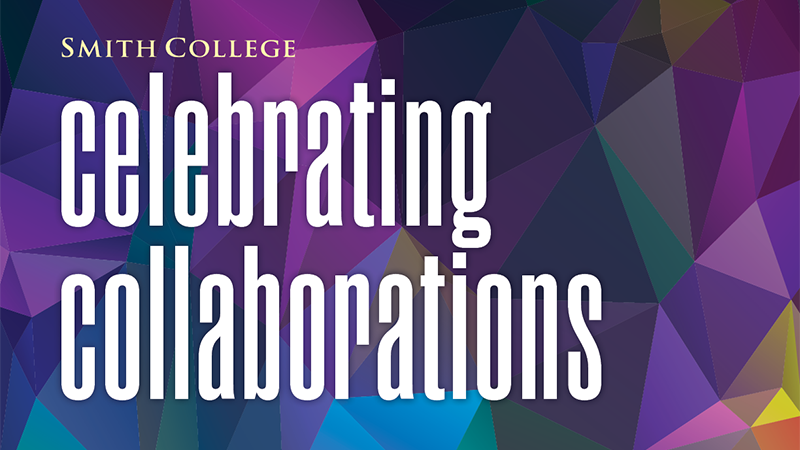
Celebrating Collaborations
“Celebrating Collaborations: Students and Faculty Working Together” showcases and celebrates the scholarly work of Smith College students. Students present the results of their senior theses, independent study projects, research seminars and other creative work as part of oral sessions, panels, poster sessions, exhibits and performances.
